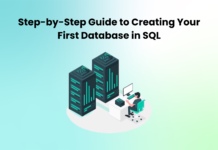Cloud backup solutions are online storage services for businesses of all sizes to help protect and manage their data. By leveraging cloud-based technology, businesses can rest assured that their important files are backed up securely and can be accessed from anywhere at any time. There are a variety of cloud backup solutions available, so it is important for business owners to understand the different types and how they can best meet their needs. This blog post will provide an overview of what cloud backup solutions are, how businesses are using them, and some key considerations when choosing a provider. Stay tuned
What is Cloud Backup Solution?
A cloud backup solution is a type of online storage service that helps businesses protect and manage their data. By using cloud-based technology, businesses can store their important files in a secure location that can be accessed from anywhere at any time. There are a variety of cloud backup solutions available, so it is important for business owners to understand the different types and how they can best meet their needs.
Types of Cloud Backup Solutions
There are two main types of cloud backup solutions:
1. File Based Solution:
File-based solutions store data in files, while block-based solutions store data in blocks. Each type has its own advantages and disadvantages, so businesses should choose the one that best meets their needs.
2. Block Based Solution:
Block-based solutions are more efficient than file-based solutions because they only back up changed blocks of data, rather than the entire file. This means that businesses can save time and storage space when using a block-based solution.
Key Considerations When Choosing a Cloud Backup Solution
When choosing a cloud backup solution, businesses should consider the following factors:
1. Cost:
The cost of cloud backup solutions can vary depending on the provider and the features that are included. Businesses should compare the costs of different providers to find the one that best fits their budget.
2. Ease of Use:
The ease of use is an important consideration when choosing a cloud backup solution. Businesses should look for a solution that is easy to set up and use so that they can get started quickly and avoid any frustration.
3. Security:
Security is a critical consideration when choosing a cloud backup solution. businesses should make sure that the provider offers secure storage and data encryption to protect their data from hackers.
4. Support:
Businesses should look for a cloud backup solution provider that offers 24/7 customer support in case they have any questions or issues.
5. Scalability:
The scalability of a cloud backup solution is important for businesses that plan to grow in the future. Businesses should look for a solution that can scale to meet their future needs.
Also, Read: The Top 8 Tools for Quickly Restoring a Database
Different Ways Businesses Are Using These Solutions
There are a variety of ways businesses can use cloud backup solutions. Some common uses include:
1. Data Protection:
Cloud backup solutions can help businesses protect their data from hardware failures, software crashes, and natural disasters.
2. Remote Access:
Cloud backup solutions allow businesses to access their data from anywhere at any time. This can be helpful for businesses with employees who work remotely or travel frequently.
3. Collaboration:
Cloud backup solutions make it easy for businesses to share files and collaborate on projects. This can be a valuable tool for businesses that have teams in different locations.
4. Disaster Recovery:
In the event of a disaster, cloud backup solutions can help businesses recover their data quickly and get back to business as usual.
5. Compliance:
Many businesses are required to comply with certain regulations, such as the Health Insurance. Cloud backup solutions can help businesses meet these compliance requirements.
6. Backup:
Cloud backup solutions can be used to create backups of important data. This can be helpful for businesses that want to protect their data in case of a system failure.
7. Data Archiving:
Businesses can use cloud backup solutions to archive data that is no longer needed on a regular basis. This can help businesses save space on their servers and reduce their storage costs.
8. Big Data Analytics:
Businesses can use cloud backup solutions to store and analyze large data sets. This can be helpful for businesses that want to gain insights into their customers or operations.
9. IT Data Storage:
Cloud backup solutions can be used to store data from IT devices. This can be helpful for businesses that want to keep track of their IT devices or use the data for analytics.
10. Edge Computing:
Cloud backup solutions can be used for edge computing, which is a type of computing that is performed at the edge of a network. This can be helpful for businesses that want to reduce latency or improve performance.
Conclusion:
We hope this article has helped you understand the different factors to consider when choosing a cloud backup solution for your business. There are a variety of ways businesses can use these solutions, and it’s important to this research to find the right fit for your needs.
FAQs
1. What is a cloud backup solution?
A cloud backup solution is a type of storage that allows businesses to store data in the cloud. This can be helpful for businesses that want to reduce their storage costs or have remote access to their data.
2. How do I choose a cloud backup solution?
There are a few factors you should consider when choosing a cloud backup solution, such as security, scalability, and customer support. You should also consider the different ways businesses can use these solutions.
3. What are some common uses for cloud backup solutions?
There are a variety of ways businesses can use cloud backup solutions, such as data protection, remote access, collaboration, disaster recovery, and compliance.
4. What are the benefits of using a cloud backup solution?
There are many benefits of using a cloud backup solution, such as reducing storage costs, improving remote access, and increasing collaboration.
5. Are there any drawbacks to using a cloud backup solution?
One drawback of using a cloud backup solution is that you are reliant on the internet to access your data. If there is an outage, you will not be able to access your data. Another drawback is that businesses have to pay for storage space, which can be costly for businesses with large data sets.
Read More : All You Need To Know About Refrigerators

































